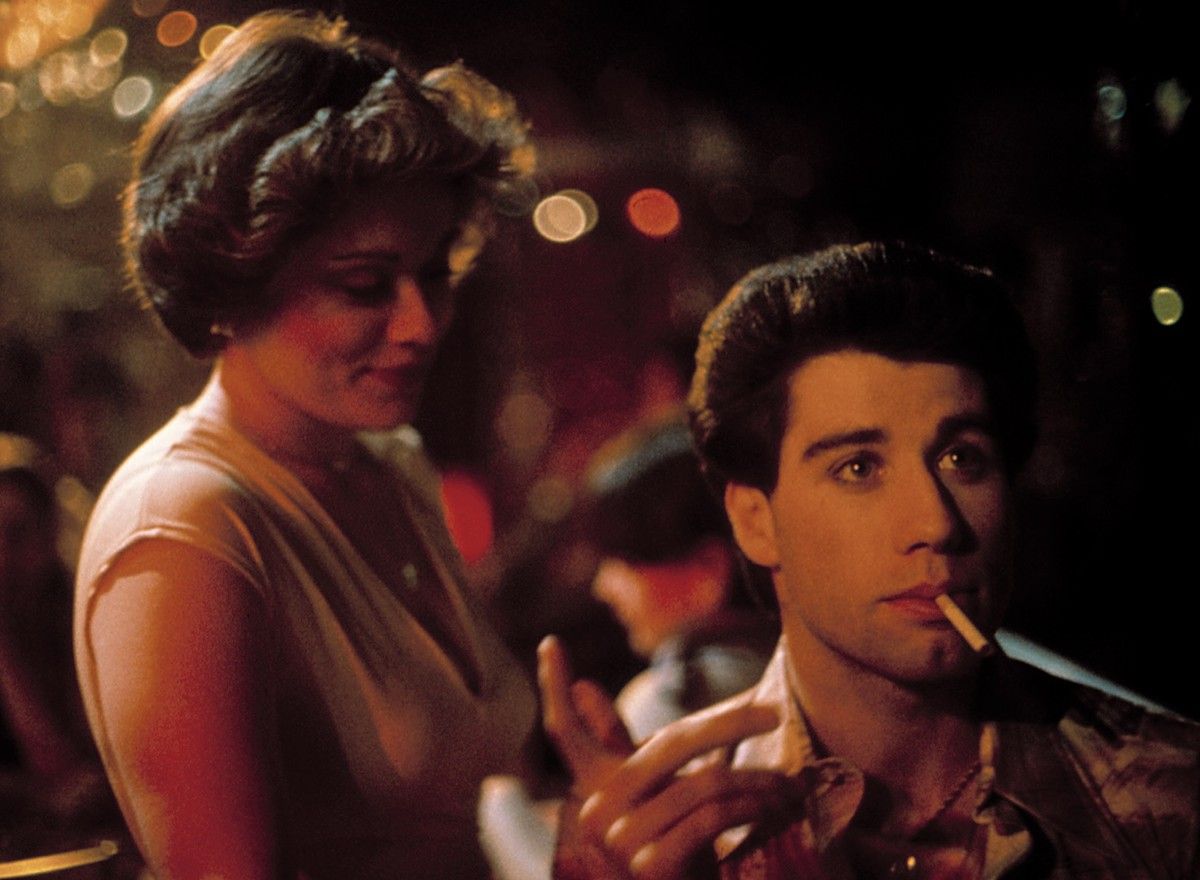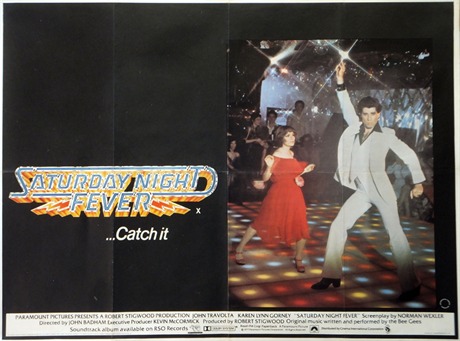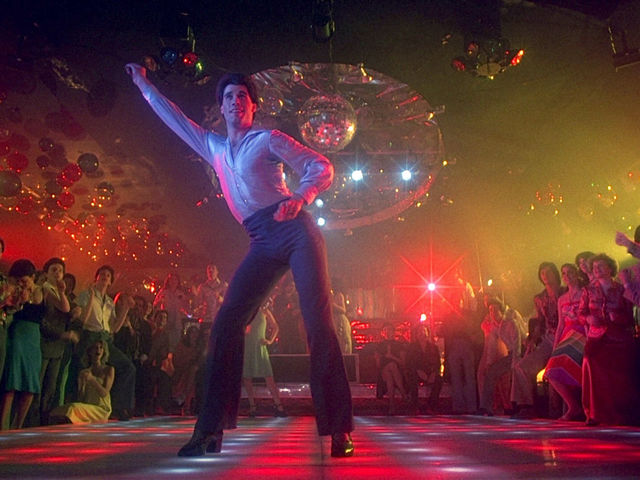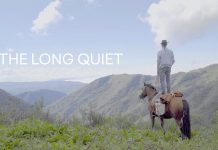It started with an article in New York magazine. TRIBAL RITES OF THE NEW SATURDAY NIGHT, by Nik Cohn – and forty years later remains a lynch-pin of disenfranchised youth in the 1970s.
SATURDAY NIGHT FEVER is forty years old and the Prince Charles Cinema in London recently hosted an Anniversary Digital screening to mark the occasion.
Directed by John Badham from a screenplay by Norman Wexler, SATURDAY NIGHT FEVER is the tale of Tony Manero (John Travolta), an Italian-American native of Bay Ridge New York, who lives with his parents and makes a living working in a paint-store. His only source of release can be found in the local 2001 Odyssey Discotheque, where he hangs out with his friends, Joey (Joseph Cali), Double J (Paul Pape) and Bobby (Barry Miller) every Saturday. A female friend, Annette (Donna Pescow), is attached to him, both on the dancefloor and in life and is determined to have a more physical relationship.
One Saturday night, Tony encounters Stephanie Mangano (Karen Lynn Gorney), who is dancing to a Latino track that Tony despises and tries to make his move on her. He encounters her during a dance rehearsal with Annette at his local dance studio, but quickly realizes that Stephanie is more than a match for the narrow-minded vision of life he has. Family matters are compounded more by the disillusionment of his brother Frank (Martin Shakar), who has quit the priesthood to the disgust of his parents, who have always looked on him as the better son than Tony…..
Four decades on, SATURDAY NIGHT FEVER comes across like an independent social drama than the blockbuster studio picture it emerged as – and retains as much of its power in spite of looking quite dated in both look and attitudes. Surprisingly, it is a more bigoted and misogynistic piece, given the treatment of the minorities in the community (the Puerto Ricans are the object of provocation by Tony and his friends throughout the film, even within the discotheque they attend), but that is part of the power of the film and the emphasis is to make Tony become a character on a journey of growth.

The film was originally passed as suitable for adults only in 1977, however in light of Travolta’s success in the more family-friendly GREASE a year later, a softer version of the film was produced for the younger crowd who couldn’t get in, which eliminated much of the bad language and sexual undertones.
The softer ‘A’ / ‘PG’ certificate version, incidentally, was the main evening film on ITV on the day of Charles and Diana’s wedding day in the UK, 29th July 1981. Both versions are enjoyable, but the adult version provides the gritty realism of life in Bay Ridge.
What is surprising today is, for a film that promoted and increased discotheque attendance, there is actually very little dancing on show in the film, showcasing Travolta’s months of training and brilliance in no more than three or four sequences. That’s not to be so critical, as the dancing on show is electrifying, particularly Travolta’s solo dance to the Bee Gees‘ YOU SHOULD BE DANCING.
The soundtrack is still the strength of the film and to date remains one of the all time best-sellers, with over 15 million to date, cementing it’s place in the Top 50 all-time successes, with the likes of The Bee Gees, Tavares, Yvonne Elliman and Kool and The Gang providing the backdrop. STAYING ALIVE, HOW DEEP IS YOUR LOVE, MORE THAN A WOMAN (covered by Tavares in the film) and NIGHT FEVER can be heard throughout and the soundtrack is one that can be enjoyed as part of the film or on it’s own terms.
Overall, SATURDAY NIGHT FEVER, despite its age, continues to fascinate and enthrall, a potent reminder of John Travolta’s star power. Barry Miller went on to appear in the original film version of FAME (1980) and Martin Shakar can be glimpsed as a government agent in the Chuck Norris action film INVASION U.S.A (1985).






























